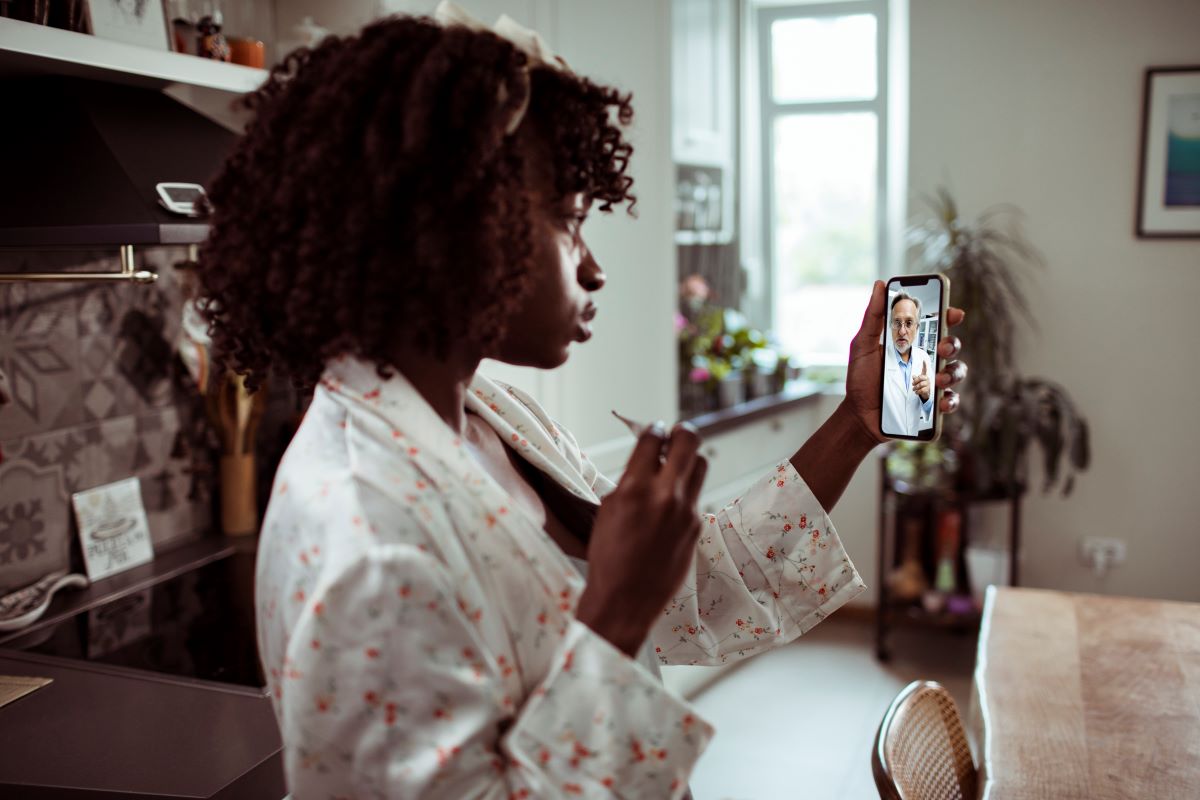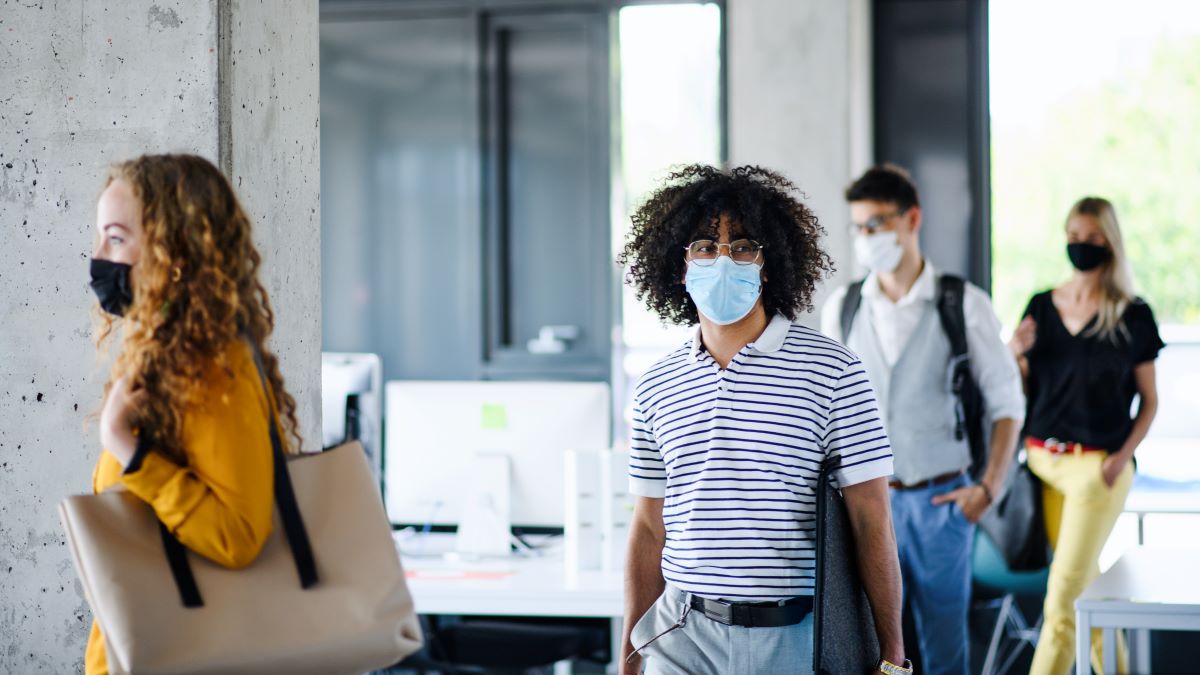COVID-19 Vaccines: What You Need to Know
This blog was published on March 12, 2021. For the most up-to-date COVID-19 information please visit our COVID-19 information center or visit the websites for the CDC and WHO.
News about COVID-19 vaccines seems to change daily. Who can get them? Where can we get them? Are they safe? Are there enough? Who can answer my questions? Keeping up with the latest and greatest can be challenging, confusing, and frustrating and we know that you want answers. We sat down with Meghan McManama, DNP, Premise Health’s AVP of Clinical Operations and Co-Chair of the COVID-19 task force, to get all the answers you need.
What are the current COVID-19 vaccine options?
There are three COVID-19 vaccines that have been granted emergency use authorization (EUA) by the Food and Drug Administration (FDA) – Pfizer-BioNTech, Moderna, and Janssen by Johnson & Johnson. All three of these vaccines are highly effective and as of the beginning of March, just under 73 million vaccines had been administered in the United States.
The Pfizer-BioNTech COVID-19 vaccine is 95% effective, is intended for individuals who are 16 years and older, and requires two doses given 21 days apart. This is an mRNA vaccine.
The Moderna COVID-19 vaccine is 94% effective, is intended for individuals who are 18 years and older, and requires two doses given 28 days apart. This is also an mRNA vaccine.
The Johnson & Johnson COVID-19 vaccine is a single dose vaccine and has an efficacy rating of 72% in the US. This is a DNA vaccine.
Why does the Johnson & Johnson COVID-19 vaccine have a lower efficacy?
The vaccine efficacy rates of these vaccines are a bit misleading. Vaccine efficacy can only be compared when the trials that study them are comparing them head to head. One of the reasons the efficacy rate looks different on Johnson & Johnson vaccine because the global trials were conducted in places with high rates of the variants. Variants are new strains of the disease that are created when the virus replicates and mutates. To understand true efficacy, it’s important to look at how effective that vaccine has been here in the U.S. where the Johnson & Johnson vaccine is 72% effective overall and 83% effective at preventing severe disease. Even more importantly, the Johnson & Johnson vaccine is 100% effective at preventing death and 100% effective at preventing hospitalizations.
It’s important not to compare the efficacy rates of the three different vaccines with each other because the only way to do that correctly is to compare them at the same time, in the same geographical location, with the same population, and the same circulating variants and mutations of the virus. Earlier this year, when the Moderna and Pfizer-BioNTech vaccines were being studied, there weren’t as many variants circulating and the general prevalence of virus was lower than it was more recently when the Janssen by Johnson and Johnson vaccine was studied.
What is an mRNA vaccine and how does it work?
The word corona comes from the Latin word for crown. The disease was named coronavirus because the virus itself is covered in little spikes that look like a crown. These spikes are proteins and, when the mRNA vaccine is injected into an individual, the mRNA attaches to your healthy cells and gives them instructions to grow spike proteins. When this occurs, your immune system recognizes that something is different and attacks it so that your cells develop antibodies against it.
So, the next time your body is exposed to the real coronavirus and its spike proteins, your body already knows how to fight it off and already has the necessary antibodies.
What is a DNA vaccine and how does it work?
DNA vaccines are adenovirus vector vaccines, meaning they take the COVID-19 virus and inject it into a modified virus called an adenovirus. Adenoviruses area type of virus that cause a number of illnesses including the common cold. When the DNA virus is injected into an individual, the same development of spike proteins occurs, and the same recognition and antibodies occur to protect you from future infection.
Are any of the COVID-19 vaccines live vaccines? Can I get COVID-19 from the vaccine?
No – None of the vaccines that currently have Emergency Use Authorization in the United States are live vaccines, so you cannot get COVID-19 from any of them. One thing that is important to remember, however, is that it takes some time for your body to develop immunity after you get vaccinated. If you were exposed to the coronavirus shortly before getting vaccinated, you could still develop an infection. If you are exposed to COVID-19 shortly after getting your first dose or before completing the vaccine series before your antibodies have fully developed, you could still develop an infection.
What are the side effects of the COVID-19 vaccine?
When you get the COVID-19 vaccine, it is likely that you will experience some side effects but most of the time they will be mild. Side effects of the COVID-19 vaccine include pain or swelling at the injection site, fever and chills, fatigue, and headaches. These symptoms should subside after 24-48 hours. Some people will experience worse symptoms, especially after the second dose or if they have had the coronavirus, but these should also subside quickly. It is important to note that side effects are not a bad sign. Side effects are a sign that your immune system is responding to the vaccine and is developing the antibodies needed to protect you in the future.
How long does it take to build up immunity after getting the COVID-19 vaccine?
You are fully immunized two weeks after you’ve been vaccinated. If you are getting a two-dose vaccine, that means you are immune 14 days after your second shot. Between your first and second shot you are still building up immunity and developing antibodies, but full immunity is not achieved until 14 days after the second shot. If you get a single dose vaccine, you are fully immune 14 days later.
Does the COVID-19 vaccine protect against all the different variants of the virus? Why are there so many variants?
Of the vaccines we have available today, evidence suggests that antibodies produced from getting the vaccines do work against the virus variants that are currently circulating, but this is still being studied.
While information on the COVID-19 variants changes daily, what we do know is that all viruses replicate. The more a virus replicates, the more it mutates, the more variants we have. If we can slow down the replication, we can slow down the spread of the virus, we can slow down the number of mutations that occur, and we can slow down and stop the variants. In order to do that we have to practice good public health measures. We have to wear masks, physically distance, wash our hands, and get vaccinated. All of those things together, not one single silver bullet, will slow down the replication of the virus and prevent future variants from developing.
Why do I have to continue wearing a mask after getting my COVID-19 vaccine?
COVID-19 vaccines are effective at protecting you from getting sick and based on what we know about COVID-19 vaccines, people who have been fully vaccinated can start to do some things that they had stopped doing because of the pandemic. For the latest CDC guidelines on what you can do after getting vaccinated, click here. However, we’re still learning how vaccines will affect the spread of COVID-19. After you’ve been fully vaccinated against COVID-19, you should keep taking precautions in public places like wearing a mask, staying 6 feet apart from others, and avoiding crowds and poorly ventilated spaces until we know more.
If I already had COVID-19, do I still need to get vaccinated?
Yes – even if you have already had COVID-19, it is still recommended that you get the vaccine when you are eligible. After having the coronavirus, you will develop some natural immunity for at least 6-8 months, but studies are still ongoing about how long that lasts. Additionally, evidence has shown that individuals can get COVID-19 more than once.
I think I’ll wait to get vaccinated. Why should I get my COVID-19 vaccine now?
For those who are thinking about waiting to get vaccinated, understand that you can’t plan when you’re going to get COVID-19. This is a once-in-a-century pandemic that has infected even the most cautious people. When you get a vaccine, you get your immunity in a controlled way, without the risk of spreading a devastating disease to your friends and loved ones. If we want to reach a point where the virus stops mutating and we can all stop wearing masks and social distancing, we need to get as many people vaccinated as possible.
If I have had COVID-19, how long do I need to wait before I can get vaccinated?
For the vast majority of people, you should wait 10 days after the first onset of symptoms and you must be fever free (without medication) and your symptoms should be improved before getting vaccinated. If you never had any symptoms, wait 10 days after you know you first tested positive. For individuals that are immunocompromised or had severe disease, you may need to wait 20 days before getting vaccinated, but you should discuss with your healthcare provider.
How can I get the COVID-19 vaccine?
COVID-19 vaccine availability and eligibility differ state by state. If you go to the CDC COVID-19 vaccine website, there is a section called “How Do I Get My Vaccine?” Enter your state and you will be shown all the locations where you can get the vaccine when eligible. You can also check with your primary care physician, local pharmacy, or local health department.
From pandemic preparation and screening to vaccination and return to the workplace, we can help your organization strategically navigate this unprecedented and challenging time.
Contact us for more information.
- If you are a Premise Health member with questions, call your health center.
- If you are a Premise Health client with questions, please contact your director of client operations.
- For media inquiries, please contact [email protected]
Next on industry insights.

[UPDATED] COVID-19: Screening and Testing Best Practices
Read the Blog
What Employers Need to Know About President Biden’s Path Out of the Pandemic COVID-19 Action Plan
Read the Blog